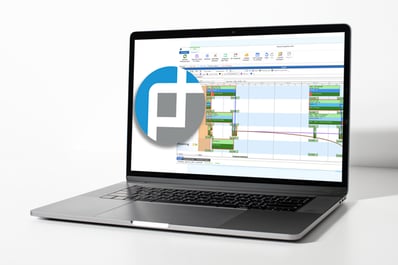Sustainable Pharmaceutical Management
As a Plant Manager, you are at the forefront of driving sustainable practices within your facility. From reducing waste to optimizing resource utilization, every decision impacts not just the bottom line but also the environment and society at large.
In this blog, we look into the realm of sustainable pharmaceutical management practices, focusing on the integration between PlanetTogether, a leading production planning and scheduling software, and various Enterprise Resource Planning (ERP), Supply Chain Management (SCM), and Manufacturing Execution Systems (MES) like SAP, Oracle, Microsoft, Kinaxis, Aveva, and others. This integration is not just about efficiency; it's about fostering a culture of sustainability throughout the manufacturing process.

The Imperative of Sustainable Practices in Pharmaceuticals
The pharmaceutical industry carries a significant responsibility to produce life-saving medications while minimizing its environmental footprint. With growing concerns over climate change, resource scarcity, and environmental degradation, sustainable practices have become non-negotiable.
Sustainable pharmaceutical management involves:
Reducing Energy Consumption: From lighting to HVAC systems, optimizing energy usage can significantly reduce carbon emissions and operational costs.
Minimizing Waste: Waste generation in pharmaceutical manufacturing can be substantial. By implementing lean principles and recycling initiatives, plants can minimize waste and enhance resource efficiency.
Water Conservation: Water is a precious resource, and pharmaceutical manufacturing consumes vast amounts of it. Adopting water-saving technologies and recycling processes can mitigate the impact on water resources.
Ethical Supply Chain Management: Ensuring transparency and ethical practices throughout the supply chain, from sourcing raw materials to distributing finished products, is essential for sustainable operations.
Compliance with Regulations: Adhering to environmental regulations and standards is fundamental for sustainable pharmaceutical manufacturing.

The Role of PlanetTogether in Sustainable Pharmaceutical Management
PlanetTogether offers advanced production planning and scheduling solutions that optimize manufacturing processes, reduce waste, and enhance efficiency. By integrating with ERP, SCM, and MES systems, PlanetTogether facilitates seamless data exchange and collaboration across the entire manufacturing ecosystem.
Integration with ERP Systems
Enterprise Resource Planning (ERP) systems like SAP, Oracle, and Microsoft Dynamics centralize data related to inventory, orders, procurement, and finances. Integrating PlanetTogether with ERP systems enables:
Real-time Data Exchange: Accurate and up-to-date information flows between production planning and other departments, enhancing decision-making and reducing lead times.
Demand Forecasting: By analyzing historical data and market trends from ERP systems, PlanetTogether can generate accurate demand forecasts, enabling proactive planning and inventory management.
Resource Optimization: Integrated ERP data allows PlanetTogether to optimize resource utilization, minimize idle time, and reduce energy consumption.
Compliance Tracking: Ensuring compliance with regulatory requirements becomes more streamlined when production planning is integrated with ERP systems, as all relevant data is readily accessible.
Integration with SCM Systems
Supply Chain Management (SCM) systems like Kinaxis and Aveva oversee the flow of materials, information, and finances across the supply chain. Integration between PlanetTogether and SCM systems offers:
End-to-End Visibility: From procurement to distribution, integrated SCM data provides comprehensive visibility into the supply chain, enabling better decision-making in production planning.
Supplier Collaboration: PlanetTogether can leverage SCM data to collaborate with suppliers, optimizing order quantities, lead times, and delivery schedules for raw materials.
Risk Management: By analyzing SCM data, PlanetTogether can identify potential supply chain disruptions and proactively adjust production schedules to mitigate risks.
Optimized Inventory Levels: Integrating SCM data with production planning ensures that inventory levels are optimized, reducing excess inventory and minimizing storage costs.
Integration with MES Systems
Manufacturing Execution Systems (MES) like Rockwell Automation and Siemens manage production processes on the shop floor. Integrating PlanetTogether with MES systems enables:
Real-time Production Monitoring: MES data provides real-time insights into production status, allowing PlanetTogether to adjust schedules dynamically based on actual shop floor conditions.
Quality Control Integration: PlanetTogether can incorporate quality control parameters from MES systems into production schedules, ensuring that quality standards are met without compromising efficiency.
Workforce Management: Integrating MES data allows PlanetTogether to optimize workforce allocation, scheduling personnel based on production priorities and skill sets.
Continuous Improvement: By analyzing MES data, PlanetTogether identifies bottlenecks, inefficiencies, and opportunities for improvement, driving continuous process optimization.
In the pursuit of sustainable pharmaceutical management practices, integration between PlanetTogether and ERP, SCM, and MES systems plays a pivotal role. By leveraging data-driven insights and optimizing production processes, pharmaceutical plants can minimize their environmental impact, enhance operational efficiency, and contribute to a healthier, more sustainable future.
As a Plant Manager, embracing these integrated solutions is not just about meeting regulatory requirements or improving the bottom line; it's about fulfilling a broader responsibility to society and the planet. By aligning sustainability with operational excellence, pharmaceutical manufacturers can achieve lasting success in an increasingly competitive and environmentally conscious industry.
Are you ready to take your manufacturing operations to the next level? Contact us today to learn more about how PlanetTogether can help you achieve your goals and drive success in your industry.

